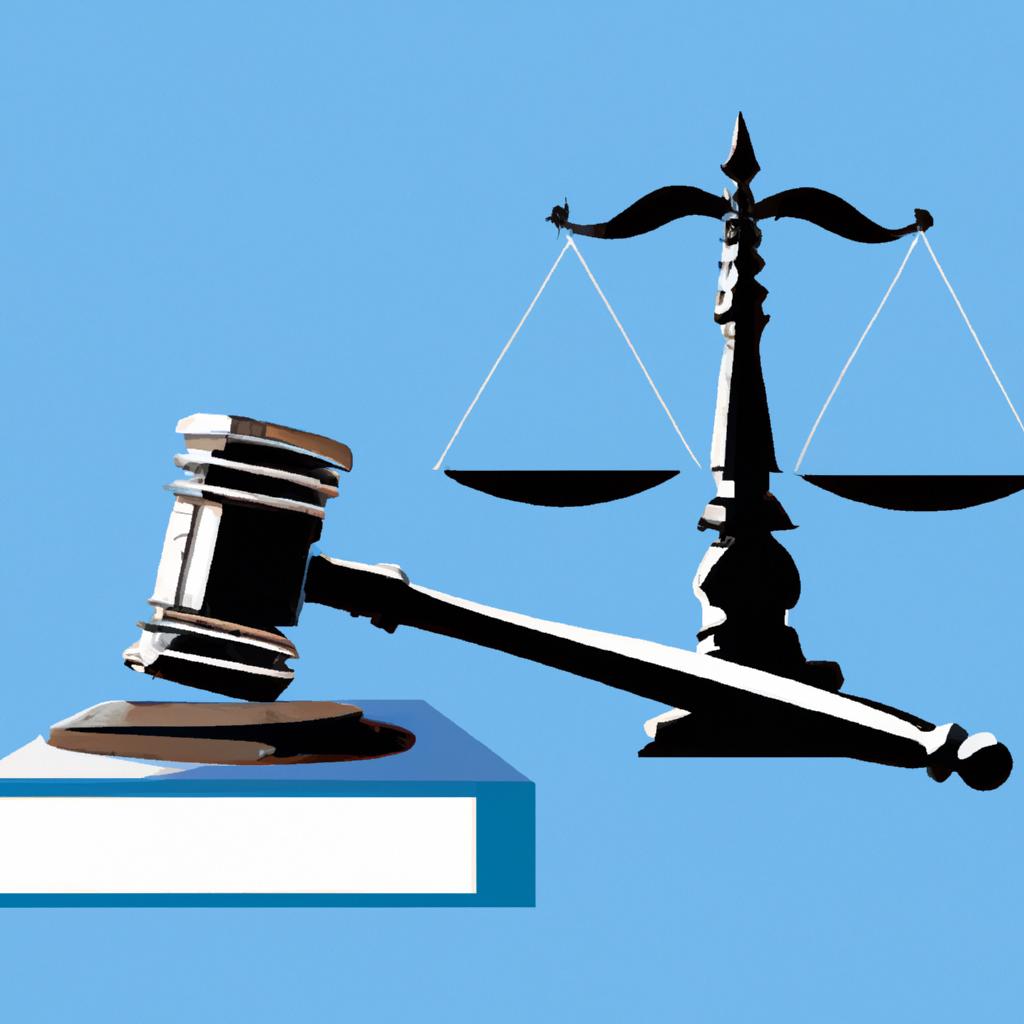In the intricate web of estate planning, the issue of homeownership can often pose complex questions in the event of both parents passing away. When navigating this delicate matter, it is imperative to thoroughly understand the legal implications and potential scenarios that may arise. In this article, we will delve into the factors that dictate who ultimately inherits the family home when both parents are no longer present. As experienced legal professionals at Morgan Legal Group in New York City, we specialize in estate planning, probate, elder law, Wills, and trusts, and are committed to providing clarity and guidance in such situations.
Determining Ownership of the House in the Event of Both Parents’ Death
When both parents pass away, determining ownership of the house can be a complex process that involves various legal considerations. In most cases, the ownership of the house will depend on how the property is titled and whether or not a will or trust is in place. Here are some key factors to consider when determining who gets the house in the event of both parents’ death:
- Property Titling: The way in which the house is titled will play a significant role in determining ownership. If the house is owned jointly with rights of survivorship, the surviving parent will typically inherit the property automatically. If the house is owned solely by one parent, ownership will pass according to the terms of the will or trust.
- Will or Trust: If the parents have a will or trust in place, the document will outline how the property is to be distributed upon their passing. It is essential to review these documents carefully to understand the parents’ intentions regarding the house.

Understanding the Importance of Estate Planning in Securing Property Rights
When both parents pass away without an estate plan in place, determining who gets the house can become a complex and stressful process. Without clear instructions, the property rights can be disputed among family members, leading to potential legal battles and family tensions. Estate planning plays a crucial role in securing property rights by outlining the distribution of assets, including the family home, according to the wishes of the deceased individuals.
Creating a comprehensive estate plan allows individuals to designate beneficiaries for their property, including the house, ensuring that their wishes are honored and their loved ones are provided for. Through wills, trusts, and other estate planning tools, individuals can protect their property rights and avoid potential conflicts among family members. Consulting with an experienced estate planning attorney, such as Morgan Legal Group in New York City, can help individuals navigate the intricacies of estate planning and secure their property rights for the future.

Evaluating Different Legal Options for Transfer of Property Ownership
When both parents pass away without a clear directive regarding the transfer of property ownership, the situation can become complex. In such cases, the property will typically pass through the probate process, where the court will determine how the property should be distributed according to state laws.
State laws vary, but generally, if both parents die without a will, the property will be transferred to their children. If there are no children, the property may pass to other family members such as siblings, parents, or grandchildren. It is important to consult with an experienced estate planning attorney to understand the legal options available and ensure that the transfer of property ownership is handled smoothly and according to the law.

Consulting a Knowledgeable Estate Planning Attorney for Sound Advice
If both parents were to pass away without a will in place, the house would typically pass to their children in equal shares. If there are no children, the house would then pass to other family members, such as siblings, parents, or grandparents.
It is important to consult with a knowledgeable estate planning attorney to ensure that your wishes are carried out in the event of your passing. An attorney can assist you in creating a comprehensive estate plan that addresses who will receive your assets, including your house, and can help guide you through the probate process.
Q&A
Q: What happens to a house if both parents die?
A: If both parents pass away without a will in place specifying who should inherit the property, the house will typically be passed down to the next of kin, such as the children of the deceased couple.
Q: Can other family members or relatives stake a claim on the house?
A: In the absence of a will, other family members or relatives may indeed try to stake a claim on the house. However, the laws of intestate succession will typically dictate who is entitled to inherit the property.
Q: What if the children are minors?
A: If the children are minors, a guardian or trustee will be appointed to manage the inheritance on their behalf until they come of age. This individual will be responsible for ensuring the property is properly maintained and any expenses are covered.
Q: Is there a way to prevent disputes over the inheritance of the house?
A: To prevent disputes over the inheritance of the house, it is strongly recommended that both parents create a will outlining their wishes for the distribution of their assets. This will provide clarity and avoid potential conflicts among family members.
Q: Can the house be sold in the event of both parents’ passing?
A: Yes, the house can be sold in the event of both parents’ passing if the heirs agree to do so. However, it’s important to consult with legal counsel to ensure all necessary steps are taken to facilitate the sale and transfer of ownership.
Wrapping Up
In conclusion, navigating the legalities and complexities surrounding the ownership of a house when both parents pass away can be a challenging and emotional process. It is important to seek guidance from legal professionals and ensure that all necessary steps are taken to protect the interests of all parties involved. By understanding the laws and potential outcomes, families can work towards a resolution that honors the wishes of their loved ones and ensures a smooth transition of property ownership. Remember, while the process may be difficult, with the right support and informed decisions, families can find clarity and peace in the midst of such trying circumstances.
 If Both Parents Die, Who Gets the House?
If Both Parents Die, Who Gets the House?
Losing one’s parents is a difficult and emotional experience, and in addition to dealing with the grief and loss, there are also practical matters to consider. One important question that may arise is what happens to the family home if both parents pass away. In this article, we will explore what typically happens in this situation and provide some helpful tips for those who may be facing this difficult situation.
First and foremost, it’s important to understand that the distribution of assets after a parent’s death is determined by their estate plan or if they do not have one, by state laws. While there are some common factors that can influence this decision, each case is unique, and it’s best to consult a legal professional for specific guidance. With that in mind, let’s take a look at some of the possible scenarios that could unfold if both parents pass away.
1. Joint Tenancy with Rights of Survivorship
If the parents owned the home as joint tenants with rights of survivorship, the surviving parent would automatically receive full ownership of the house. This is the default ownership arrangement for most married couples, and it means that when one spouse dies, the other automatically inherits their share of the property without the need for probate court involvement. The surviving spouse would then be free to decide what to do with the house, whether that means keeping it, selling it, or transferring ownership to another family member.
2. Tenancy by the Entirety
Similar to joint tenancy, tenancy by the entirety also includes the right of survivorship. However, this type of ownership is reserved for married couples and offers additional protection against creditors. If the parents owned the home in this way, the surviving spouse would automatically inherit full ownership of the home.
3. Tenants in Common
If the parents owned the home as tenants in common, each owned a separate share of the property. In this case, when one parent dies, their share is inherited by their designated beneficiary or is passed on according to their will. If both parents die, their respective shares would pass on to their individual beneficiaries. For example, if one parent owned 70% of the property and the other owned 30%, their individual shares would be distributed as per their wishes.
4. No Estate Plan
If the parents did not have a will or estate plan in place, state law will determine the distribution of their assets. In most cases, this means that the property would be divided equally among the couple’s children. This can become complicated, especially if one or more of the children want to keep the house while others may want to sell it. In such situations, it’s essential to consult with a legal professional to ensure a fair and satisfactory resolution.
What about Other Relatives?
In situations where there are no surviving relatives or the parents are unmarried, the home may pass on to siblings, nieces or nephews, or even more distant relatives. Once again, this would depend on the laws of the state where the property is located.
Tips for Dealing with the Family Home After the Loss of Both Parents
Losing both parents can be a devastating experience, and it can be challenging to handle practical matters while dealing with grief. Here are some tips to help make this process a little less overwhelming for those who may find themselves in this situation:
1. Prepare in Advance – While it’s not a pleasant topic to think about, it’s crucial to have an estate plan in place that clearly outlines how you want your assets, including your home, to be distributed after your passing. This will ensure that your wishes are followed and can ease the burden on your loved ones.
2. Seek Legal Guidance – If you find yourself in a situation where both parents have passed away, it’s essential to consult with a legal professional as soon as possible. They can help guide you through the estate planning process and ensure that all necessary paperwork is filed correctly.
3. Communicate with Family Members – In situations where the family home is inherited by more than one individual, communication is key. It’s crucial to sit down and discuss the various options for the property, keeping in mind everyone’s wants and needs. This can help prevent conflicts and ensure everyone is on the same page.
4. Consider All the Costs – Owning a home comes with various expenses, such as mortgage payments, property taxes, and maintenance costs. Before deciding what to do with the family home, it’s essential to consider these costs and whether it’s financially viable to keep it.
In Conclusion
Losing both parents can be a challenging and emotional experience, and dealing with the family home can be a complicated matter. Hopefully, this article has shed some light on the various scenarios that could unfold and provided some helpful tips for those finding themselves in this situation. Remember, it’s always best to seek legal guidance to ensure that all decisions are made according to the law and your family’s best interests.

